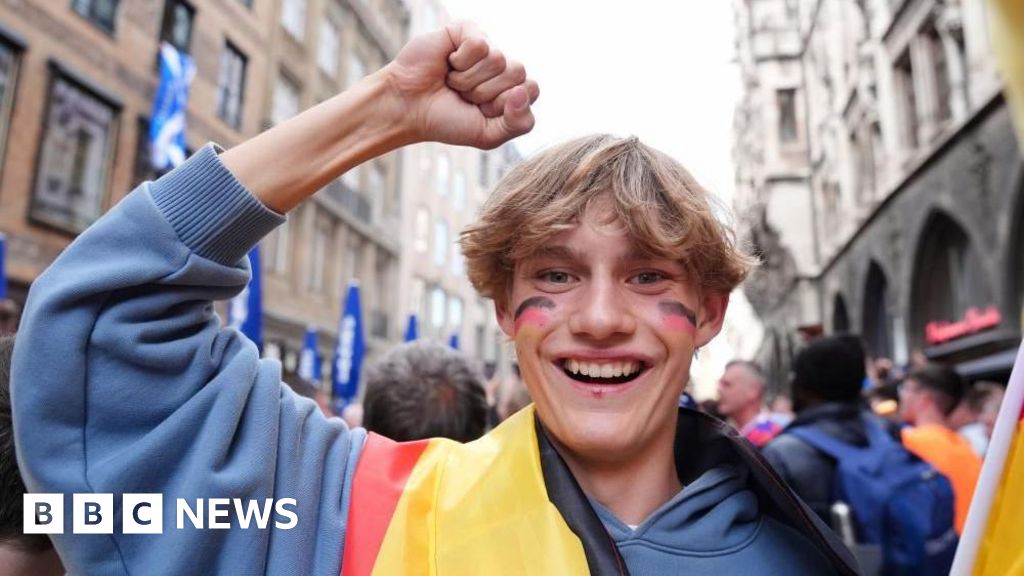“Everybody hopes for a Sommermärchen 2.0 with the happy mood of 2006 returning in 2024, but I am sceptical,” says leading football journalist Philipp Köster.
He identifies a number of reasons why he feels like this.
“It’s a different situation, we’ve got the war in Ukraine, we just went through the pandemic, society is torn, people don’t know what direction they should take.”
Germany’s ruling three-way coalition, that assumed power in 2021, has passed key legislation, but perpetual bickering has made it unpopular.
At the same time, the far-right anti-immigration AfD has been picking up support and scored an unprecedented success, coming second at last weekend’s European Parliament elections.
“It’ll be interesting to see if this tournament makes people come together, turn into good hosts and maybe find some direction themselves,” says Philipp Köster.
There’s plenty of direction at ESV Freimann football club in the north of Munich.
It comes from the legions of volunteer coaches dispensing vocal encouragement to the many dozens of young players who are training on the impeccably kept grass.
More than 300 children play here every week with 18 teams in all. The women’s side is currently the most successful.
If the appetite for Euro 2024 is wanting among many German adults, the teenagers here buck the trend. They’re revelling in the prospect of being hosts.
“I think it will bring people together because it’s something we share as a community because so many people love football,” says 14-year-old Samuel.
But he doesn’t believe Germany are good enough to win the tournament.
It’s a view shared by his teammate Ryan, although he predicts the impact of a home victory would be massive.
“If the Germans win, then many more people will play the game and that’s a really good thing. But I just can’t believe this is all happening where I live.”

